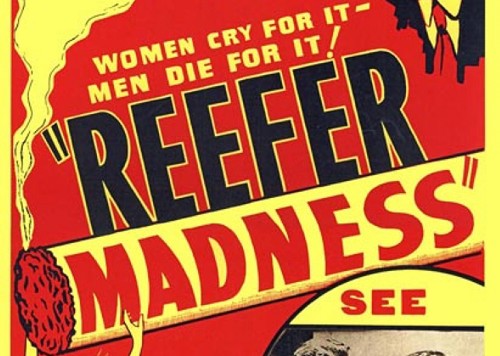
Legalizing the cultivation, possession, and sale of marijuana seems like buying a goose that lays golden eggs — just pass the law, sit back, and enjoy increased tax revenues and reduced law enforcement costs. Easy peasy, right?
Unfortunately, politicians never do something the easy way when they can instead turn the whole process into an expensive regulatory maze that rewards well-connected lobbyists and campaign contributors while denying the public maximum benefit.
The latest case in point is New York, where governor Kathy Hochul whines that legalization is a “disaster” because New Yorkers decline to navigate that regulatory maze and are instead just growing, selling, buying, and consuming cannabis without her permission.
“It’s not every street corner,” she complained to the Buffalo News. “It is every other storefront. It’s insane.”
Would she consider it “insane” if “every other storefront” sold milk, or bottled water, or trail mix? I kind of doubt it, but given her obvious predilection toward controlling literally everything, it wouldn’t surprise me either.
New York’s “legalization” law didn’t legalize growing your own cannabis. It didn’t allow existing “medical marijuana” dispensaries to sell to regular customers. And so far, the state has only licensed about 50 stores to sell the stuff — in a state with a population of 20 million people.
Here’s a quick primer on how to successfully legalize marijuana:
Step One: Repeal all laws pertaining to the cultivation, possession, sale, or purchase of marijuana.
Step Two: Enjoy the increased sales tax revenues and reduced law enforcement costs.
Step Three: There is no step three. You’re done.
Trying to impose burdensome “licensing” schemes and taxes (or, at least, taxes above the usual sales tax rate on everything else) creates a “worst of both worlds” scenario.
When it’s hard to buy — and still illegal to grow — the newly “legal” substance, and when the “legal” version is heavily taxed, people will still want the stuff as much or more than they did when it was “illegal.”
People who want to grow their own already WERE growing their own and will continue to do so. People who prefer to purchase it will purchase it, and they won’t care whether their dealer, or their nearest convenience store, has a Very Special, Important, and Expensive Permission slip hanging on the wall.
If Hochul is serious about solving the “problems” of marijuana legalization, she’ll stop trying to enforce the state’s idiotic licensing schemes and tell the legislature to ACTUALLY legalize the stuff already.
The marijuana genie was never really in the bottle — in the war on marijuana, marijuana was always the winner — and now it’s coming fully out and granting people their consumption wishes.
The politicians can get out of the way, or they can get run over.
Thomas L. Knapp (Twitter: @thomaslknapp) is director and senior news analyst at the William Lloyd Garrison Center for Libertarian Advocacy Journalism (thegarrisoncenter.org). He lives and works in north central Florida.
PUBLICATION/CITATION HISTORY


